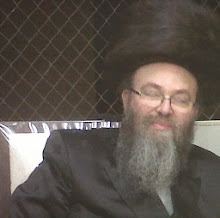Know this well. “The mazalot influence in the nefesh [which is the yetzer hara itself] is truly noteworthy, for the mazalot are under the dominion of the malachim [angels], ‘which are as souls to the stars’ [R’ Yitzchak Abarbanel z”l on Devarim 18:24], which operate directly under the Divine guidance. As the mazalot control the ‘fundamental elements’ [i.e, earth, water, air, and fire] and the nefesh is imbued of these elements, the power of control exerted by the mazalot is truly formidable and natural, to wit, instinctive…
Now, once the tendencies of each man are manifested in accordance to the mazalot influences and his yetzer hara, he will need to choose with his sechel if his life’s path will be traversed with a pompous and affected walk of one who ignores G-d and lives only to serve these natural influences and debased desires, or contrary to that, he will seek to align himself humbly to the laws of Torah, so as to walk in a straight and dignified manner, worthy of a being with a holy soul. And as our Sages explain, “Who is strong? He who subjugates him yetzer hara” (Pirkei Avot 4:1). And how to subjugate it? Remembering that, “The yetzer hara can be compared to an iron rod over the flames of a strong fire. While it is over the fire, the object can be molded into any form the person desires. Such is the yetzer hara which can be subjugated through the words of Torah, which are as a fire” (Avot d’Rebi Natan 16:4), for as it is written, “The L-rd your G-d é a consuming fire” (Devarim 4:24), and “G-d and His Torah are one” (Zohar II:85b, Yitro).
Therefore, we see that one’s decisions have great impact on his physical and spiritual, for “know that exactly corresponding to the impulses of man here are the influences which he attracts to himself from above. If his impulse is towards the side of kedusha, he attracts to himself the kedusha from above and in this manner, he sanctifies himself. However, if his tendency is towards the side of impurity, then he brings a impure spirit down to himself, and becomes thus polluted and blemished” (Zohar I:125b, Chaiye Sarah).
Thus, choosing is a vital activity, for in the first case, man is subjugated and becomes enslaved by the cold stars and planets, and his destiny is thus set. While in the second, he establishes a direct contact with Hashem in accordance to the spiritual law: “You shall be perfect with the L-rd your G-d” (Devarim 18:13); thus being subjugated only by the Ribono Shel Olam and remaining completely ignorant his future, which after all, will depend on his actions here and on the Divine mercy! Now we understand the Talmudic dictum, Ein Mazal L’Israel (Shabat 156a) to be interpreted by the holy Ba’al Shem Tov as Ayin Mazal L’Israel, to wit, contrary to the non-Jew and his connection with destiny, the Jewish connection is direct and unique with the level of Ayin, the ‘Divine Nothing’, allowing for a complete transcendence of the lower level of the mazalot. As explained by HaRav Yitzchak Ginsburgh שליט"א, “The Ari’zal reveals in the Etz Chayim that the non-Jewish astrology only reaches up to the 12 constellations or signs of astrology, but there are many other levels above that one. The highest level is the 12 permutations of the Name of G-d Havayah. Only the Jewish People is connected to this level. In being connected to this level, they have the power to recreate, for the name Havayah signifies ‘creation continues’”. Hence, “Israel’s own destiny is an eternal and indefinable state of Ayin. Only its connection to the Ayin Sof exists, with this abstract Origen, and from this Origen only this people [which does not accept the mazalot] depends and persists” (Ibid. “A Bondade para Avraham”). As G-d cannot be defined, the destiny of the Jew cannot be defined. And this is the greatest gift for this people having accepted the Torah – its true freedom.
